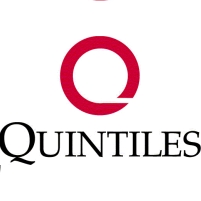U.S. Drug Companies Save Money by Testing New Products on Poor Foreigners
Tuesday, August 09, 2011
 Quintiles is the largest clinical research organization
Quintiles is the largest clinical research organization
Rather than expose themselves to U.S. media scrutiny, not to mention the American judicial system, pharmaceutical companies in the United States are increasingly turning to foreign nations to test their new drugs. The trend in outsourced clinical trials has grown to a $30 billion a year “clinical research organization” industry.
According to the Food and Drug Administration (FDA), 80% of approved drugs in the U.S. have undergone foreign testing, but only 1% of foreign testing sites have been inspected.
Today, more than 115 countries have opened their doors to the likes of Merck and AstraZeneca, allowing them to conduct clinical trials on the poor and uneducated in Russia, China, Brazil, Uganda and Romania.
India, especially, has welcomed pharma manufacturers that wish to take advantage of the country’s professional, English-speaking class of workers, established medical infrastructure and bounty of illiterate people (40% can’t read) to use as guinea pigs.
Drug testing has even exploited survivors of the Union Carbide gas leak in Bhopal in 1984. A series of trials was conducted from 2004 to 2008 at a hospital built to treat the thousands who died from the industrial accident. In many cases, the survivors did not know that they were participating in testing. But the government stopped the testing once it got out in the press what was going on.
-David Wallechinsky
U.S. Pharmaceutical Companies Testing Drugs on India’s Poor (by Viji Sundaram, New America Media)
Outsourced: Clinical Trials Overseas (Fault Lines, Aljazeera)
First Convictions in 1984 Bhopal Gas Leak Disaster (by Noel Brinkerhoff, AllGov)
- Top Stories
- Unusual News
- Where is the Money Going?
- Controversies
- U.S. and the World
- Appointments and Resignations
- Latest News
- Musk and Trump Fire Members of Congress
- Trump Calls for Violent Street Demonstrations Against Himself
- Trump Changes Name of Republican Party
- The 2024 Election By the Numbers
- Bashar al-Assad—The Fall of a Rabid AntiSemite






Comments